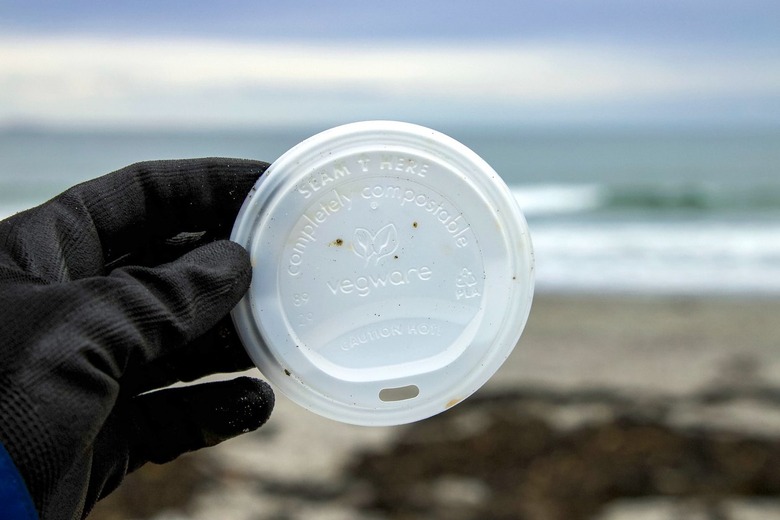What Is Greenwashing, And How Do You Know If It's Happening?
Now more than ever, both companies and individuals are being mindful of their impact on the environment. Overall, that's great to see — but unfortunately, there are always those who try to game the system. In the case of sustainability, there's the issue of greenwashing.
"Greenwashing is when a company presents itself — or a product or service — as environmentally friendly when the big picture of the entire organization does not support such a claim," Nancy Landrum, professor of sustainability management at Loyola University Chicago, tells Hunker.
Because it's "trendy" to be eco-friendly, many companies will toss marketing buzzwords into their materials in an attempt to convince potential customers that they're doing right by the planet. But oftentimes, those claims are misleading.
Landrum points to the issue of compostable goods as an example. "Consumers buy these products with the belief that the products are better for the environment and will break down in a benign way even if thrown in the trash. What the companies fail to mention is that the products are only compostable when composted!" she says. "Studies conclusively show that compostable products do not break down in landfills and, in fact, could even cause more greenhouse gas emissions under these conditions than non-compostable items, thus effectively removing all environmental benefits."
It might seem like such fraudulent claims should be regulated by business authorities like the Securities and Exchange Commission (SEC) and the Federal Trade Commission (FTC) — and they are, to an extent. While it's illegal to outright lie in marketing material, it's not necessarily illegal to mislead, which is generally what happens with greenwashing.
That's set to change in Europe, however. In 2021, the European Commission published the results of a "sweep" of consumer websites that sought to catch instances of greenwashing, noting that "in 42% of cases the [sustainability] claims were exaggerated, false, or deceptive and could potentially qualify as unfair commercial practices under EU rules." Now, lawmakers are looking into punishing such practices more harshly.
However, the United States isn't quite up to Europe's speed. "Since U.S. governing agencies aren't yet stepping in on these bad-faith practices, there needs to be an open discussion on corporate responsibility and deviance in an effort to apply pressure to companies making false claims, igniting them to reevaluate how they follow through on their sustainability promises," Sarah Paiji Yoo, co-founder and CEO of Blueland, tells Hunker. Blueland seeks to remove single-use plastics from the cleaning supply industry, packaging its products in reusable containers and eliminating the plastic coating from its dishwashing detergent and laundry pods.
In the meantime, it's up to individuals to research companies' sustainability claims before they make a purchase.
"More often than not, consumers take a brand's claims at face value, making them vulnerable to the green-washed market. While it's unreasonable to ask consumers to look into every purchase they make, it's simple enough to arm shoppers with the knowledge and tools needed for label critique," says Yoo. "Giving consumers this agency leads to shifts in spending and added demand for brands to be transparent in their environmental practices."
Unfortunately, there's not just one clear-cut way to investigate a company's claims. Landrum points to Canada-based environmental marketing agency TerraChoice's "Sins of Greenwashing" and the FTC's Green Guides as good places to start, but notes that the latter hasn't been updated in a decade.
"These lists share some commonalities that might be red flags in evaluating eco-claims of products: vagueness; buzzwords, which are not regulated; extreme, suspicious, or unsubstantiated claims; and self-certification, which is certification without any oversight or verification," says Landrum. "Instead, look for third-party certification that has already verified the claims, like B Corporation, Green Seal, Fair Trade, Cradle-to-Cradle, and non-GMO verified, just to name a few."
